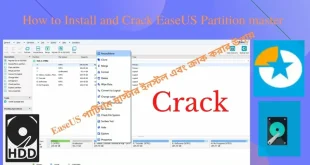Being charged with a DUI (Driving Under the Influence) can significantly impact your driving privileges, often resulting in a license suspension or revocation. Losing your driving privileges can disrupt your life, from limiting your ability to commute to work to affecting personal responsibilities. However, there are steps you can take to protect your license or regain it after a DUI charge. In this guide, we’ll explore how a DUI affects your driving privileges and what you can do to defend your license.
1. Immediate Consequences: License Suspension After DUI Arrest
In most states, a DUI arrest triggers an automatic administrative license suspension by the Department of Motor Vehicles (DMV), separate from any penalties imposed by the criminal court. This suspension can happen even if you haven’t been convicted yet. The length of the suspension varies depending on several factors:
- First-time offenders: For first-time DUI offenders, the suspension typically lasts anywhere from 3 months to 1 year.
- Repeat offenders: If you have previous DUI convictions, the suspension period can increase to several years.
- BAC level: If your Blood Alcohol Concentration (BAC) was significantly over the legal limit (e.g., 0.15% or higher), you may face a longer suspension, even for a first-time offense.
What to do:
- Request a DMV hearing: After your arrest, you typically have a limited window of time (usually 10–30 days, depending on the state) to request a hearing with the DMV to contest the license suspension. If you fail to request a hearing within this time frame, the suspension will take effect automatically.
- Prepare with an attorney: Having a DUI attorney represent you at the DMV hearing can improve your chances of successfully contesting the suspension. Your lawyer can help present evidence, question the arresting officer, and argue on your behalf.
2. Restricted License: An Option to Maintain Driving Privileges
In some states, if your license is suspended after a DUI arrest, you may be eligible for a restricted or hardship license. This type of license allows you to drive under limited conditions, such as commuting to work, school, or medical appointments.
How to obtain a restricted license:
- Meet eligibility requirements: You must typically complete certain conditions before being granted a restricted license. These may include paying fines, attending DUI school, and installing an ignition interlock device (IID) on your vehicle.
- Ignition interlock device: Many states require first-time and repeat DUI offenders to install an IID, which prevents the vehicle from starting if it detects alcohol in your breath. This device must be installed at your expense, and you may need to keep it for several months or years, depending on the severity of your offense.
3. Challenging the Legality of the DUI Stop
One of the most effective ways to protect your license is by challenging the legality of the DUI stop. Law enforcement must have probable cause to stop your vehicle, such as observing a traffic violation or erratic driving. If the stop was made without a valid reason, any evidence collected during the stop (including BAC results) may be excluded from the case. This potentially leading to a dismissal of charges and restoration of your driving privileges.
Steps to challenge the stop:
- Review the arrest report: Your attorney will carefully review the details of the arrest to determine if the stop was lawful. If the officer did not have a valid reason to pull you over. Your attorney can file a motion to suppress the evidence.
- Question the officer’s actions: If the arresting officer failed to follow proper procedures during the traffic stop or the field sobriety test. This may also be grounds for challenging the validity of the stop.
4. Fighting the Breathalyzer and Chemical Test Results
Breathalyzer and blood test results are a major factor in DUI cases, but they are not infallible. Inaccurate test results can occur due to faulty equipment, improper administration of the test, or external factors affecting your BAC reading. Challenging the accuracy of these tests can help you protect your driving privileges.
Common issues with chemical tests:
- Breathalyzer calibration: Breathalyzer machines must be regularly calibrated and maintained to provide accurate results. If the device was not properly calibrated, your attorney can argue that the results are unreliable.
- Medical conditions: Certain medical conditions, such as acid reflux, diabetes, or ketosis, can lead to falsely elevated BAC readings. Your attorney can present evidence of these conditions to challenge the test results.
- Procedural errors: The arresting officer must follow specific procedures when administering a chemical test. For example, they must observe you for a certain period before administering a breathalyzer to ensure that no alcohol remains in your mouth. Failure to follow these procedures can result in unreliable results.
5. DUI Education and Treatment Programs
In many states, completing a DUI education or alcohol treatment program is a requirement for reinstating your license after a DUI conviction. These programs aim to educate offenders about the dangers of drinking and driving and help prevent future offenses.
DUI education requirements:
- DUI school: First-time offenders are usually required to complete a short DUI education course, which covers topics like alcohol’s effects on driving and the legal consequences of DUI. Repeat offenders may need to complete longer or more intensive programs.
- Alcohol treatment programs: If the court believes that alcohol abuse was a contributing factor in your DUI, you may be required to attend alcohol counseling or treatment. Completing these programs can help demonstrate to the court and DMV that you are taking steps to address any issues and regain your driving privileges.
6. Voluntary Installation of an Ignition Interlock Device (IID)
In some states, you can voluntarily install an IID on your vehicle as a proactive measure to prevent a DUI-related suspension or to qualify for a restricted license. An IID requires you to provide a breath sample before starting the vehicle and prevents the engine from starting if it detects alcohol.
Benefits of installing an IID:
- Shorten suspension period: Voluntarily installing an IID may allow you to regain driving privileges sooner than waiting out the full suspension period.
- Demonstrates responsibility: By taking proactive measures, you can show the court and DMV that you are committed to preventing future DUI incidents.
7. Expunging a DUI from Your Record
In some cases, once you’ve completed your court-ordered penalties (such as DUI school, fines, and probation). You may be eligible to have the DUI conviction expunged from your record. While an expungement won’t completely erase the DUI, it can help restore your driving privileges and remove some of the barriers to finding employment or securing car insurance.
How to expunge a DUI:
- Eligibility: Eligibility for expungement varies by state but typically requires that you have completed all penalties related to your DUI conviction and have no further criminal activity.
- Filing for expungement: Your attorney can help you file a petition for expungement. If granted, the conviction will be removed from your criminal record, which can also help lower your insurance premiums and restore your reputation.
8. Navigating the Court Process
Understanding the court process and working with a skilled DUI lawyer Toronto is essential to protecting your driving privileges. An attorney can help you navigate the legal complexities of a DUI case and present the strongest possible defense.
Importance of legal representation:
- Negotiate with the prosecution: Your attorney may be able to negotiate a plea deal to reduce your charges This could prevent the loss of your license.
- Challenge the evidence: A skilled attorney can scrutinize the evidence presented by the prosecution, including the legality of the stop, the accuracy of the chemical tests, and the arresting officer’s actions, to build a strong defense.
Conclusion
A DUI charge can have serious consequences on your driving privileges. But there are several steps you can take to protect or regain your license. By requesting a DMV hearing, exploring legal defenses, completing DUI education programs, and working with an experienced DUI attorney. This can minimize the impact of a DUI charge on your ability to drive. Remember, proactive measures like installing an IID and addressing alcohol-related issues can demonstrate responsibility. It help you regain your freedom on the road.
 Daily Blogger News Stay updated with the latest trends and insights. Your reliable source for daily updates and information.
Daily Blogger News Stay updated with the latest trends and insights. Your reliable source for daily updates and information.







